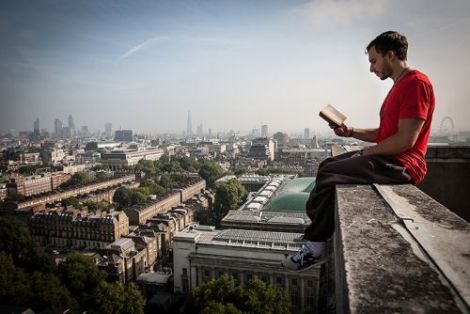A lot of my life over the last year or so has been taken up with festivals. That’s not to say that this year has been a hedonistic one (far from it), but rather that both my working life and my academic research has increasingly revolved around the planning, conceptualising, and programming of various forms of festivals—including the forthcoming national festival of the humanities Being Human (15th-23rd November 2014). It seems like a good time therefore to put down a few personal thoughts about festivals and why they can be a good thing for researchers and ‘the academy’ to interact with.
First, I should say that I have not historically been that much of a festival person. I have never been to Glastonbury, don’t like camping, and generally prefer a day in the library to a night traipsing round a festival site. That said, however, I have always been what you might call a festival sympathiser: interested in the conceptual and aesthetic apparatus of festivals without actually getting mud on my boots. This may be why the festivals that I have been involved with, and interested by, have been those that actively try to challenge and rethink the idea of what festivals should be.
Over the past year I have worked on three projects that have attempted this. Firstly I coordinated the programming for the School of Advanced Study’s contribution to the Bloomsbury Festival in 2013, as part of the AHRC’s Cultural Engagement Fund pilot scheme. This programme was designed to enable a re-thinking of SAS’s place in relation to its local cultural and civic milieu, developing partnerships and collaborations in Bloomsbury and allowing the School to engage with a public beyond its usual audiences. Following from this, I have also recently been working on the AHRC-funded project ‘Bloomsbury Festival in a Box: engaging socially isolated people with dementia’. Here I am working with Age UK Camden to bring a peripatetic, miniaturised version of the Bloomsbury Festival to the homes of elderly people living alone with dementia in Camden, and assessing the impact of these cultural interventions as part of the AHRC’s Cultural Value Project.
Both of these projects have changed my perspective on festivals. I have seen that such events can be embedded in their local communities as forces for social change, and that they can be used to draw out the inherent creativity embedded in institutions, individuals, and groups of people not usually thought of in these terms.
I hope to bring this new perspective to my programming and curatorial work on Being Human. The first national festival of the humanities, Being Human will between the 15th-23rd November draw together a programme of events (coordinated by SAS in partnership with the AHRC and the British Academy) geared towards public engagement with the best and most innovative contemporary research in the humanities. One aim of the festival is, as I see it, to prompt a collective re-thinking of the role of the humanities in the social, cultural and political life of the UK. From my perspective, a fantastic outcome of the festival would be not only to create a week of exciting, unusual and carnivalesque activities celebrating humanities research (I hope for this, too), but to contribute to an ongoing culture change within academia around the role of universities as outward looking, socially responsible and culturally engaged institutions.
What is the value of the world of HE engaging with festivals like ‘Being Human’? It seems to me that this might be a process that leads us, as reflective, engaged, and informed humans as well as humanities practitioners, researchers and facilitators, to rethink what higher education itself is, and what it could be.
For further information…
Being Human Festival Main call for participation
UK’s first national festival dedicated to the humanities is announced
Arts & Humanities Research Council News Item
Michael Eades is Cultural Contexts Research Fellow in SAS Central. He joined SAS in 2013 to coordinate their programming and engagement with the Bloomsbury Festival, funded by a Cultural Engagement Pilot Scheme award from the AHRC. He currently works on the AHRC-funded project ‘Bloomsbury Festival in a Box: engaging socially isolated people with dementia’, and on programming for the forthcoming ‘Being Human’ festival of the humanities. Led by SAS and supported by the AHRC and the British Academy, this will be the UK’s first national festival of the humanities, and aims to inspire public engagement with research in this area.

